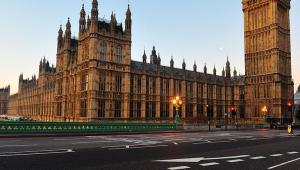Publishing a white paper that sets out an offer to work with the new administration, the LGA said continuing to make cuts without reform would stifle growth and make some local services unsustainable.
The English devolution: local solutions for a successful nation paper highlighted that as much as £20.6bn in potential public sector savings could be made through better local coordination of services, as well as unlocking an extra £80bn in economic growth.
LGA chair David Sparks said plans set out by Chancellor George Osborne for a Cities Devolution Bill did not go far enough.
Osborne has pledged that proposals to boost the powers of metropolitan areas would be included in the government’s Queen’s Speech, but he would only give additional powers over transport, housing, planning, policing and health, to areas that appoint city mayors.
However, Sparks said councils recognised the need for change and were proposing a new partnership with government to equitable settlement for England through devolution to a sub-regional level.
‘The evidence is overwhelming and devolution within England is the most effective way to create jobs, build homes, strengthen healthy communities and protect the vulnerable in all parts of the country.
‘If we are to rebalance our economy ultimately all places, from our great cities to the powerful engines of our economy in non-metropolitan areas, need greater freedom from Whitehall.’
As a first step, the LGA called for the forthcoming Spending Review to put long-term settlements in place for public services to give local authorities greater fiscal freedom. This should include the removal of the council tax referendum cap and full local retention of business rates.
Following this, the government should allow voluntary local governance arrangements to be developed across England by 2017.
This would allow all areas to devise proposals for groups of councils, similar to the combined authorities being created around England’s core cities, which would be sustainable in the long term. As well as combined authorities, the LGA said possible structures could include statutory joint committees, public service boards and enhanced Health and Wellbeing Boards.
Combined authorities could have accountability through a directly elected mayor, either with executive power or as part of a cabinet made up of constituent member councils, or an indirectly elected leader appointed by other councils. Structures also including a leader from a multi-county area, supported by an advisory board or cabinet from all constituent members were possible, the report stated.
Once suitable structures were in place, this would allow devolution of responsibilities and implementation of fiscal autonomy to be underway ‘comprehensively’ by the end of parliament in 2020, the LGA said.
This would take place on a staged basis that respected both local need and capacity. The pace of change should be based on as assessment of government and leadership arrangements as well as a sound risk management strategy.
The report acknowledged there was a risk that some areas would not be able to come to voluntary agreements, but called on the government to offer two incentives to help ensure deals.
Firstly, all areas should be able to draw on a menu of powers covering seven key areas: economic development; transport and infrastructure; employment support and skills provision; housing and strategic planning; use of public assets; policing and public safety; and health and social care.
Secondly, where local partners can set out a business plan to deliver better results by aligning other services more effectively, they should also be able to bring forward proposals for negotiation.
Today’s paper was based on the work of three independent commissions, the LGA said – the City Growth Commission and the LGA-backed independent commissions on local government finance and on growth and public services in non-metropolitan England.




















